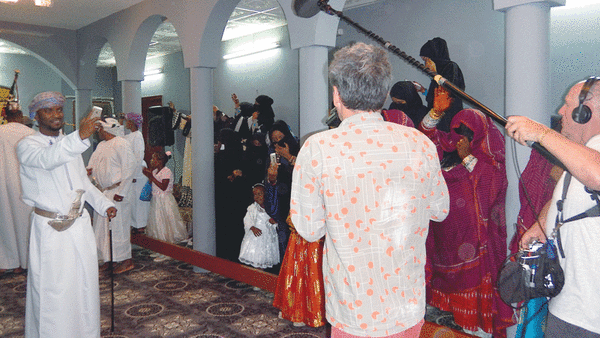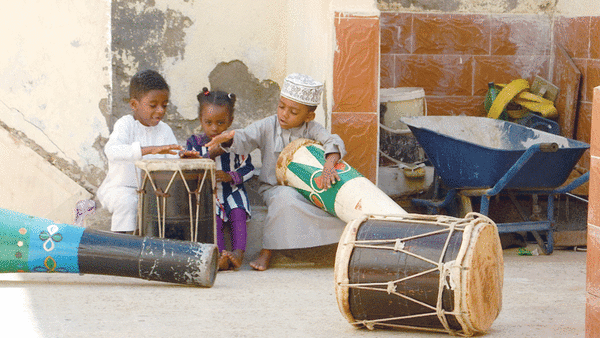

A few years ago, I was part of a team that was working on a production for the French channel FR3 about African music in Oman.
The team of four people included journalist Veronique Nizon, her cameraman, her sound engineer, and myself, standing as interpreter and guide.
We travelled to Sur, where we stayed for almost a week, meeting Omani musicians who are keen on perpetrating old traditional music from east Africa.
We were warmly welcomed by the enthusiastic musicians, who were happy to share with us their musical heritage.
In Oman, music is mostly played on special occasions like weddings, in parks, and at official events.

“The music was a way to encourage and entertain sailors on their long journey in the seas between Zanzibar and Oman,” said Mohamed, who plays the Msundu, a long cylindrical drum. “Nowadays we play music to have fun and create a joyful atmosphere wherever we perform.”
During our stay in Sur, we were lucky enough to assist in a wedding in the suburbs of the town.
Men and women danced and sang together in an extraordinary ambiance of happiness and joy. We could feel the rhythm flowing in their veins!
Close cultural and trade ties between Sur and Africa existed in the past. The Omani town was a major port in the 17th and 18th centuries that was used to export dates, dried fish, carpets woven from sheep wool, and frankincense to East Africa and India.

During that period, the Omani empire ruled much of East Africa’s coast and the islands of Zanzibar. Omani sailors played a key role in introducing African instruments, music, dance, and the Swahili language.
The openness of Omani people, thanks to Oman’s long history as a seafaring nation, is felt in the amalgamation of different traditional types of music they play.
One example of this amalgam of music is the one played in Razha, which originally referred to the sword dance. It includes drumming, clapping, and rowing movements.
After a week of shooting in Sur, we headed to Sifa, a coastal village close to Muscat, where we rented a wooden dhow to film a group of musicians from Sur in “action”.

It was great to see these young Omanis enjoy playing the music of their ancestors. “Today we are lucky to play and enjoy the music of our parents, but in the days when they used to spend several weeks at sea on a sailing boat to reach the African coast, it was a way to make their journey less tiring and boring,” says Khalfan, one of the musicians.
It is fortunate to have the youth perpetuate the traditions of their ancestors; otherwise, all countries would look the same and the world would be boring.
Oman Observer is now on the WhatsApp channel. Click here



